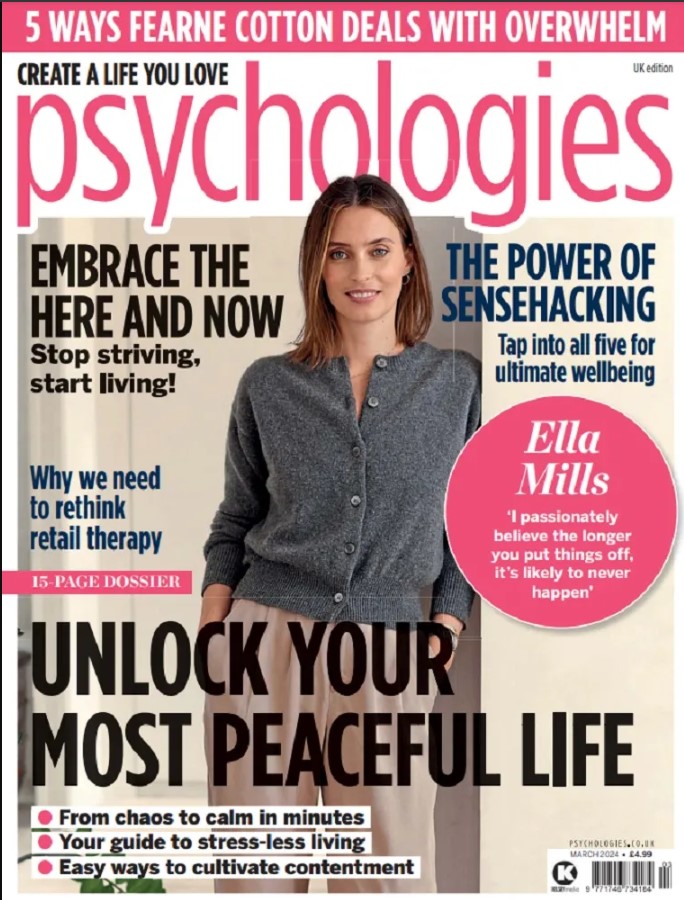Four tips to help you stop living in fear
These can feel like terrifying, unpredictable times, but who wants to live in fear? Chris Connors told us about growing up in Belfast in the troubled 1980s. He became a creative mentor, meditation teacher and business coach, and has found a way to find calm within the chaos

Here are four insights and practices that may help:
1. Distinguish between fear and anxiety
Fear is defined as an emotional state triggered by real danger that is in front of you, whereas anxiety is created from an image of danger that is not present in that actual moment.
This is a huge distinction. Look at fear as a positive, instinctive emotion that serves you loyally – fear gets you out of danger. It is explained in the body by a general activation of our sympathetic nervous system (the fight-flight-freeze mechanism). Fear flows through us and onwards. It is a powerful and delicate emotion; a multi-layered experience rather than a flatline concept that should be avoided. Fear can actually be exciting – think of your last roller coaster ride or perhaps a parachute jump. Fear is part of our awakened natural animal world.
Anxiety, however, is the product our own internal TV show that is produced and directed by ourselves. It uses stock images borrowed from many other sources. It is within our power to change the images projected in our mind, but we need the discipline to be able to change the channel.
According to 2011 statistics released by the US Department of State, you are 35,079 times more likely to die from heart disease than because of a terrorist attack. And of course, anxiety is a major contributing factor to heart disease. Doesn’t it make more sense to focus on overcoming the threats that are more likely to harm you?
2. Master your thoughts
Check and see which of your thoughts and images are true in the moment. I realised through meditating on anxiety that if you are not fully present to what stands before you, then your mind will produce thought-driven images that feel as though they are true, even though they aren’t true.
If you are in your living room, staring into space, worrying about the horrific events in Paris, you will automatically be watching these ‘anxious imprints’ in your mind. However, the actual reality in that moment is that you are sitting on your favourite chair gazing at your white ceiling.
Once you realise that you are producing and directing these imprints, based on images that you have seen, then you can make choices about them. Are they true in my reality? Probably not. Are they serving me? Probably not.
This is why there can be no anxiety in the present moment – because present-moment living doesn’t need imagination – it sees the world as fascinating and beautiful enough. The image is right in front of you, even if it’s only your white ceiling.
Feeling compassion and empathy with regards to a terrible situation is something else. For example, I can feel compassionate for those living in Syria, but it is not my reality right now. If compassion leads you to take action to support and alleviate suffering, then you will probably be much less anxious about the whole thing.
Try this: if you are highly stressed about something, focus on an object in front of you for 10 breaths. Relax. Just observe that object for what it is, notice its shape, colours and texture. Now let that go. Notice how you feel. This is simple meditation at its best.
3. Practise meditation daily
Meditate every day. It’s really that simple. There are so many ways to meditate, whether you just watch the sky, or sit in the lotus position, or join a course. Just ensure two things: the first is that you are aware of your breath and, second, that you are observing thoughts arise in a non-judgemental way.
4. Honour your mornings
Your brain collects information, from what you do on first waking up to determining how to operate throughout the day. So, if you are running wild on your smartphone or glued to the news first thing, you will most likely be increasing your anxiety levels.
Keep your mobile phone in the living room overnight – don’t take it to the bedroom with you. When you wake up, try to meditate for at least 10 minutes immediately.
In the kitchen, as you prepare for the day, choose to listen to music over the news. You have the rest of the day for chat and to find out what the news is.
While you have your shower, think about what you’re grateful for. This will remind you of the good news in your life – the news that really matters to you.
Chris Connors is a creative director, mentor, coach and meditation teacher. For more information about Chris Connors, visit modernconscious.com
Photograph: Corbis









